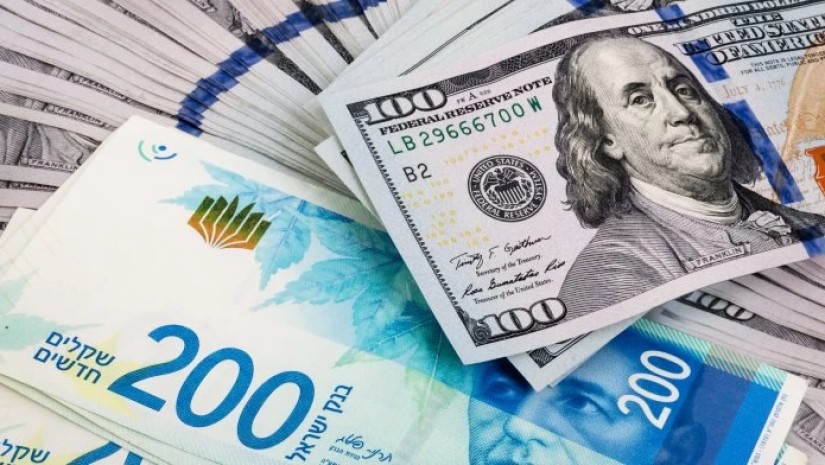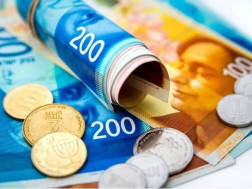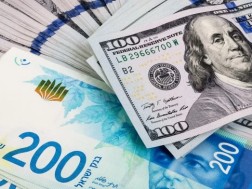The shekel responded to the security situation in Israel yesterday by depreciating sharply against the US dollar, by about 2.5%, and the exchange rate exceeded NIS 3.95/$.
The main event on the foreign exchange market yesterday, though, was the Bank of Israel’s announcement in the morning that it had begun to intervene to provide liquidity in the local market and to enable it to function. The central bank said that it would sell $30 billion.
Despite the bank’s announcement, the shekel, as mentioned, depreciated sharply. The representative shekel-dollar rate was set 1.217% higher than Friday’s rate, at NIS 3.910/$, and the representative shekel-euro rate was set 1.157% higher at NIS 4.120/€.
The shekel-dollar rate is currently up 1.01% in comparison with yesterday’s representative rate, at NIS 3.9494/$, and the shekel-euro rate is up 1.42%, at NIS 4.1783/€.
In a press briefing yesterday, bank officials said that the effect of the intervention should not be measured over a single session, but after a few days, during which the bank will review its activity on the market. Bank of Israel Markets Department head Golan Benita said, "During overnight trading in Asia, the exchange rate reached NIS 4.2 and even NIS 4.3 shekels to the dollar, therefore it was important to increase certainty in the local market in order to mitigate as much as possible overreactions in the market."
There are those who believe that the shekel will continue to weaken for as long as the fighting lasts. "It looks as though the shekel-dollar rate will climb towards NIS 4.2/$," Yossi Fraiman, CEO of Prico Group, told "Globes", as the security events strengthen the trend of depreciation of the currency. Fraiman says that the Bank of Israel will have to inject more money into the market in order to stabilize the exchange rate. "The rate of depreciation of the shekel is strong and rapid," he stresses.
Harel Gilon, co-CEO of Oppenheimer Israel, told "Globes" that the amount that the Bank of Israel was going to sell was huge. "The dimensions of the Bank of Israel’s intervention are unprecedented. The bank has foreign currency reserves of $200 billion, and it decides to sell $30 billion. The bank has not reported how much it has sold so far, but with such a huge number it certainly seeks to scare speculators and those out to make money from the shekel’s depreciation. The bank has shown that it is involved, and stubborn in its determination to stabilize the market."
Asked how the shekel will behave in the near future, he says that it’s hard to know. "The event we are in is on a scale the like of which we haven’t experienced, and it’s impossible to say what will happen."
Another form of action that the Bank of Israel can take is on interest rates. The bank’s key rate is currently 4.75%, and were it not for the war, we should have expected a further hike towards the end of this month. Gilon describes a situation in which the bank will very soon have to consider cutting its rate.
"When you look at the numbers for reserve soldiers being called up for duty, it’s clear that economic activity is going to slow down. Besides that, he points out that in wartime whole industries in effect cease to exist. "Tourism, restaurants, and overseas travel simply come to a halt, and that will certainly change the inflation situation we had here up to now, and in fact lead to an economic slowdown," Globes reports.
















